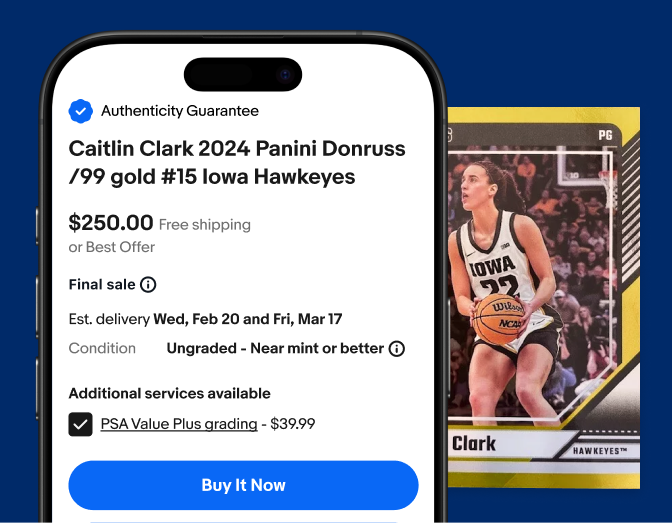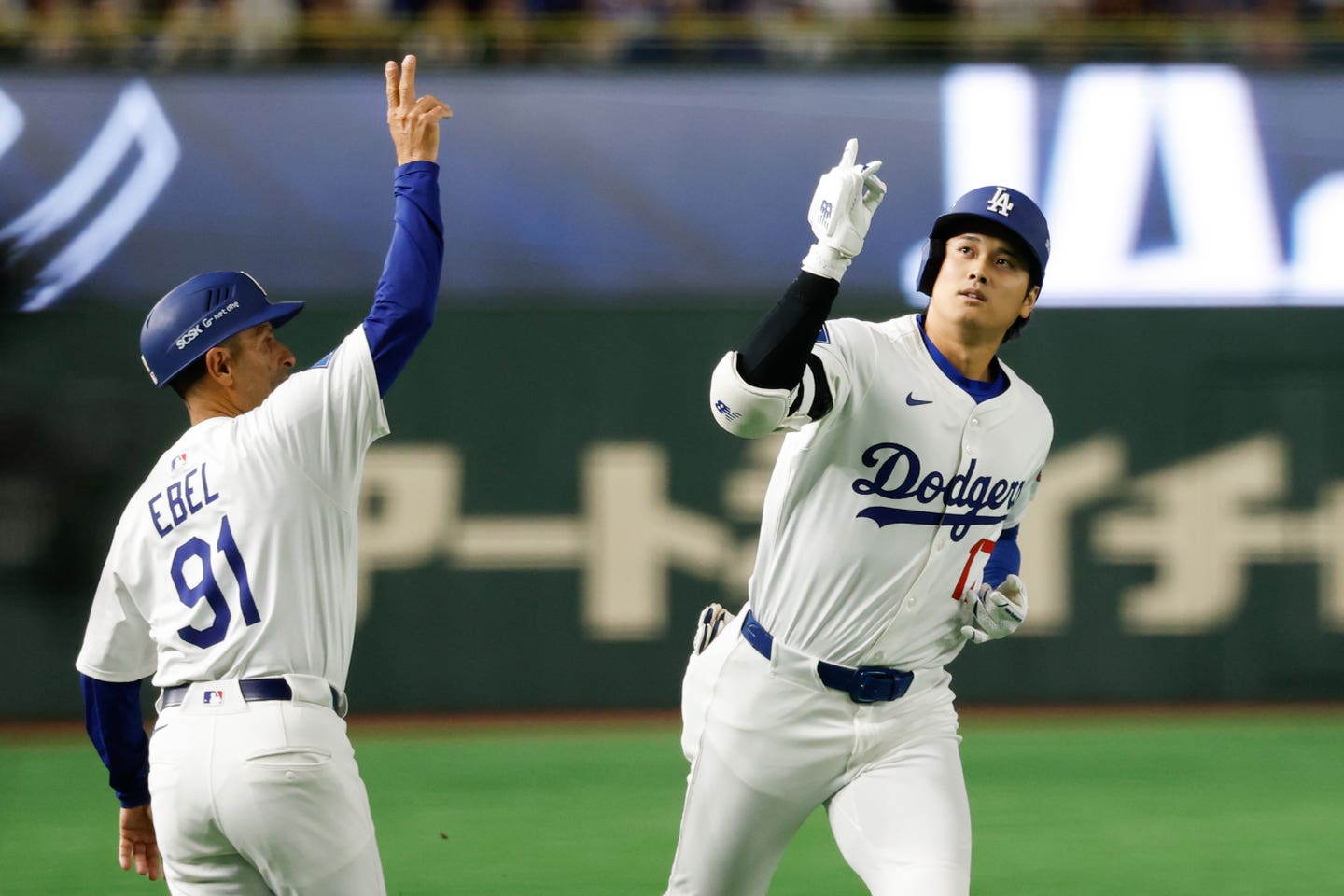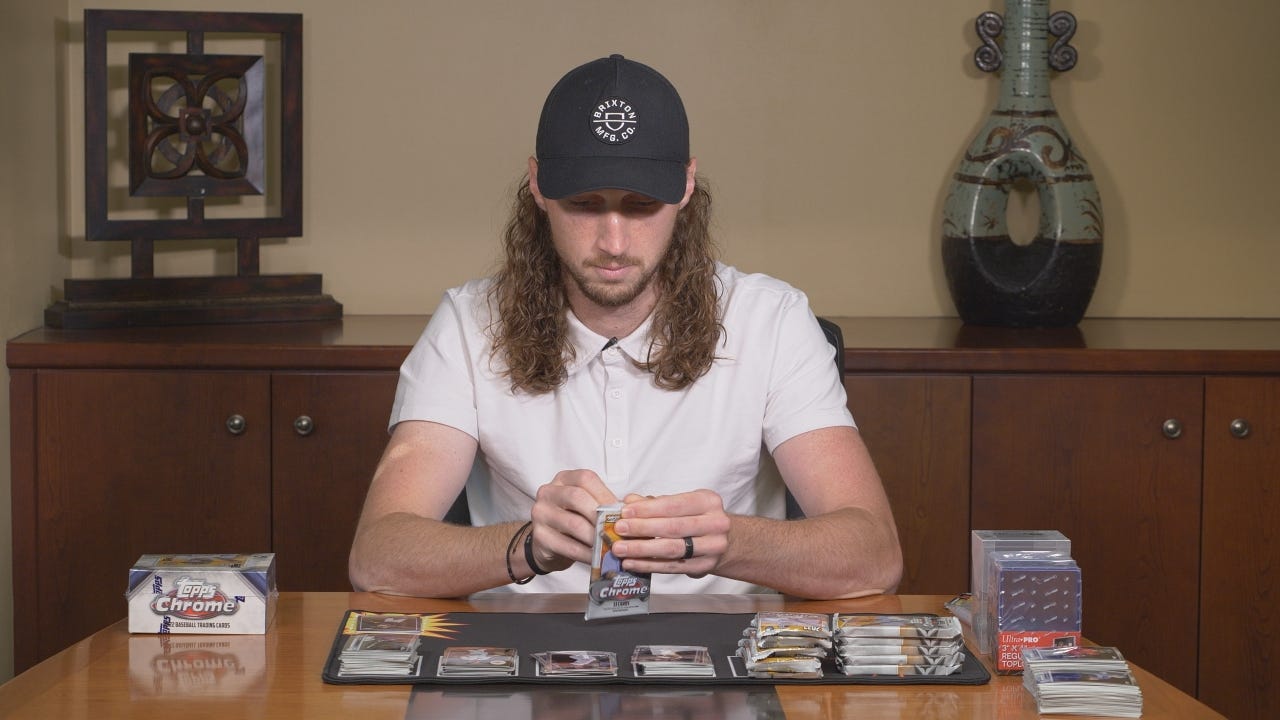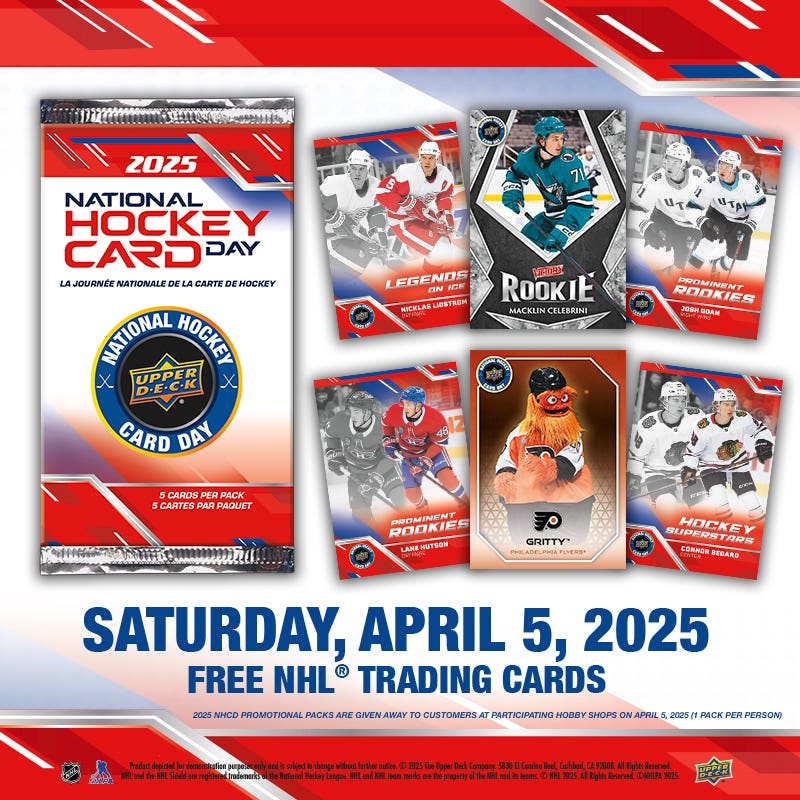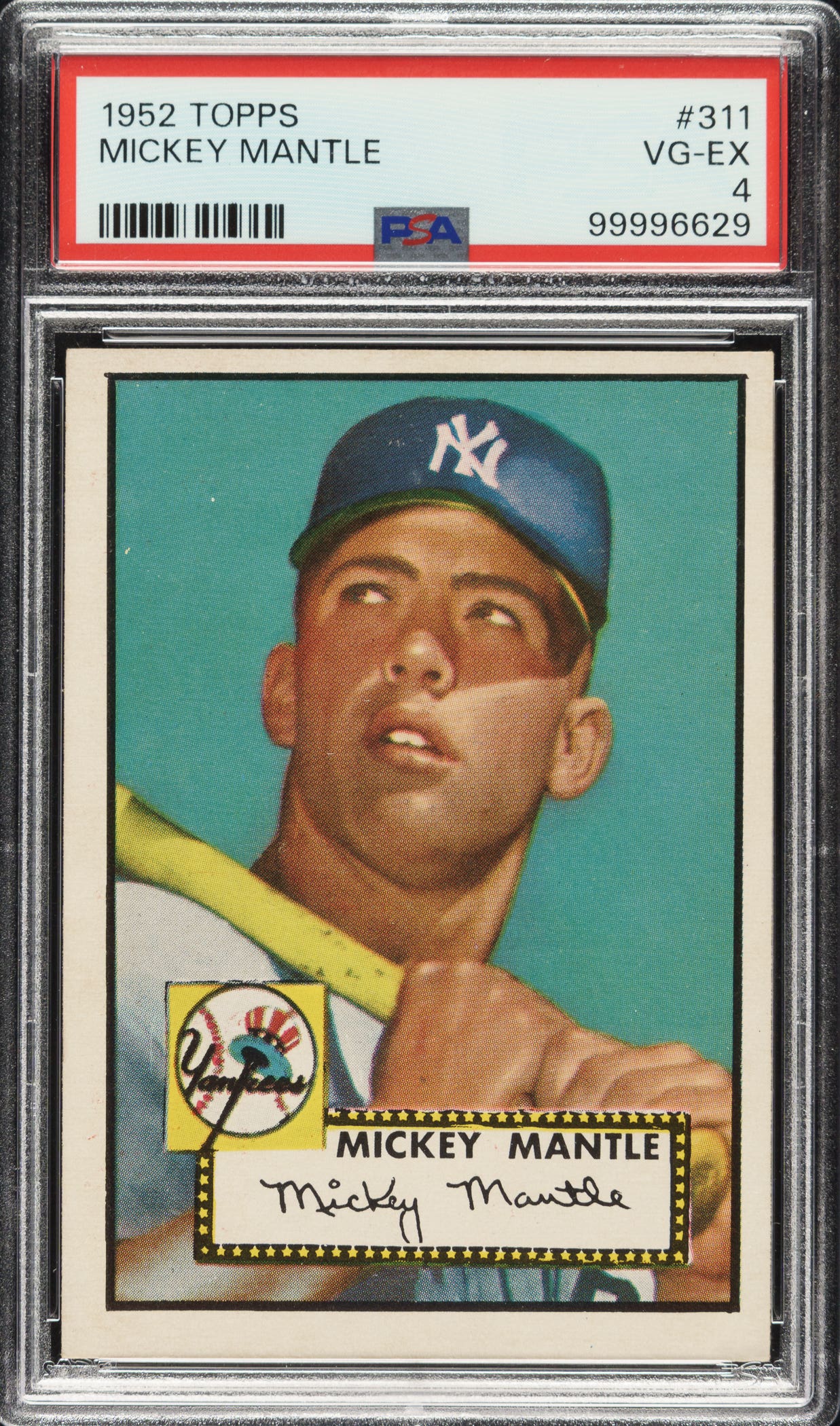
News
Ivan Rodriguez is considered one of the best defensive catchers
By Robert Grayson
During his 21-year major league career, Ivan Rodriguez owned home plate. Fans had to wonder if officials at the Baseball Hall of Fame would bend the rules when the Gold Glove backstop was elected to the Cooperstown shrine this year and design his plaque to replicate the dish. Of course, that wasn’t going to happen, but if it did, Pudge probably would have felt the need to stand in front of it, just to protect it. After all, that seems to come naturally to him.
Rodriguez is considered one of the greatest defensive catchers to ever play the game, and his skills with the bat can’t be ignored, either. He loves to talk about defense and even while wearing a suit and tie, he’ll gladly give you a few lessons on how to get down and block a wild pitch.
“I take great pride in my defensive game. That was the main part of my game,” the 14-time All-Star says. “I had a good career offensively, but, to me, there’s nothing like throwing a guy out trying to steal and killing the other team’s rally. That’s what I came to the ballpark to do every day.”
During his career, the strong-armed catcher threw out 46 percent of the runners who attempted to steal a base when he was behind the plate. That compared to a major league average of 31 percent for the rest of the catchers throughout the big leagues who played during the same era as Pudge (1991–2011). During nine separate seasons, Rodriguez eclipsed the 50 percent mark when it came to cutting down runners trying to swipe a base while he manned the plate.
“People always ask me what my best memories are in baseball and I always think of something I did on defense. That’s what means the most to me. I really liked throwing out a guy trying to steal or picking someone off who is taking a big lead. That really helps the team. It can change the whole game,” he notes.
One of those moments came in the first game of the 2003 World Series. Pudge was playing for the Florida Marlins, who were taking on the powerful New York Yankees in that Fall Classic. In the third inning, Yankees first baseman Nick Johnson walked. He moved to third on a single by Yankees shortstop Derek Jeter. There were two outs, and Hideki Matsui was at the plate. Johnson strayed off third base. With pinpoint accuracy, Rodriguez threw a rocket down third and picked Johnson off. That killed the Yankees’ rally. The Marlins went on to win the game 3–2. Pudge still feels that play set the tone for the entire series, and flashes a big grin when he talks about the snap-throw that nailed Johnson.
Catching was not the position Rodriguez would have chosen for himself. When he first started playing baseball at age seven, in his hometown of Vega Baja, Puerto Rico, he was a pitcher and a third baseman. He had the arm to play either of those positions. But his father, Jose, thought his son’s cannon arm would serve him better behind the plate as a catcher who could throw runners out trying to steal.
Pudge didn’t like the idea. The seven-year-old started to cry. He remembers his father telling him, “You can cry all you want, but you’re going to be a catcher.” Rodriguez cried for about 15 minutes and never shed another tear about becoming a catcher.
During his playing days as a youngster in Vega Baja, Pudge’s biggest rival was Juan “Igor” Gonzalez, who would also grow up to play in the major leagues one day. They were on different Little League teams and often played against each other. In fact, the two talented Little Leaguers lived just down the road from each other. Rodriguez and Gonzalez would end up as teammates with the Texas Rangers from 1991 to 1999 and again in 2002.
Members of the Rangers’ player development team were so impressed with Rodriguez when they went down to scout players in Puerto Rico in July 1988, that they signed him surreptitiously. Before the tryouts began, one scout from the Rangers saw Pudge throwing in the outfield and asked him to make a throw down to second.
“I made one throw and he stopped me,” Rodriguez recalls. “We went out to the parking lot and I signed a contract with the Texas Rangers on the trunk of a car. There were scouts there from other teams and he didn’t want them to have a chance to sign me. I was 16 years old.”
Rodriguez spent the 1989 season with the Class-A Gastonia Rangers in the South Atlantic League. But even before he played one game as a pro, he got his now-famous nickname, Pudge. Chino Cadahia, a minor league coach in the Texas Rangers system, saw Rodriguez on the first day of training camp in 1989, the new Hall of Famer says, thinking back to that memorable day.
“I was short and stocky (5-foot-9, 205 pounds) and he called me ‘Pudge’ right away. I didn’t mind,” he recalls.
And why should that moniker have bothered him? That powerful build gave him the ability to block the plate, making it extremely difficult for baserunners to lay a hand on what he playfully called “my base.” The catchy nickname would follow him through the rest of his career, though many fans assumed that it was coined because his outstanding, hard-nosed play reminded people of another Hall of Fame backstop, Carlton Fisk, the legendary catcher with the Boston Red Sox and the Chicago White Sox.
“I wish it did because I’m a big fan of his, but it didn’t. Just had to do with the way I looked,” Rodriguez says.
He spent the 1990 season with the Class-A-Advanced Port Charlotte Rangers in the Florida State League, where he put up respectable numbers with the bat. But it was his defense that caught everyone’s attention. The up-and-coming backstop was known throughout the league for his twin abilities to throw out runners trying to swipe a base and to catch runners napping and picking them off base. His throws were laser-sharp.
By 1991 Rodriguez was with the Double-A Tulsa Drillers in the Texas League. After 50 games, he was considered the number one prospect in the Texas League and the Rangers wanted him in the majors. Texas had tried several catchers behind the plate during the early part of the 1991 season, but management wasn’t impressed by any of them. The big club was watching Rodriguez closely and just couldn’t wait any longer.
Pudge got the call to the majors on June 20, 1991 and met the Rangers at Comiskey Park II in Chicago, where Texas was getting ready to play the White Sox. Pudge had traveled hundreds of miles that day, and was exhausted. But when he got to the ballpark, he saw his name penciled into the lineup card for that night’s game.
His adrenaline flowing, the excited 19-year-old didn’t flinch: He just suited up and gave the Rangers what they wanted. In the fifth inning, White Sox second baseman Joey Cora was hit by a pitch by Rangers starter Kevin Brown. The speedy Cora decided to test the new kid behind the plate. On the first pitch to the next batter, White Sox center fielder Lance Johnson, Cora took off for second. Pudge threw Cora out by at least 20 feet; he didn’t even get a chance to slide. The Ivan Rodriguez legend was born.
In the top of the eighth inning, with the White Sox ahead 3–2 and looking for an insurance run, Warren Newson singled. He also tried to test Pudge’s arm with the same result as Cora.
In the top of the ninth, with the White Sox still up 3–2, the Rangers scored five runs. Rafael Palmeiro walked, then Ruben Sierra followed with a homer. The next batter, Julio Franco, also homered. With the Rangers leading 5–3, Juan Gonzalez got up and singled. He moved to third on a Steve Buechele double. Rodriguez would complete his memorable day by hitting a single, his first major league hit, and knocking in two runs.
The Rangers went on to win the game 7–3.
“I rarely talk about anything I did offensively in my career. I like to focus on defense. That was very important to me. It was my game. So I think of defense when I think about big moments in my career. But my first hit—the first day I came to the big leagues—that’s something I will remember the rest of my life,” says the All-Star catcher, who collected 2,844 hits over the course of his 21-year career.
When Rodriguez first got to the major leagues, the Texas Rangers had some outstanding veteran pitchers on its roster, including Nolan Ryan, Kevin Brown, and Jose Guzman.
“They didn’t treat me like a kid. They felt I was here, so I must be able to do the job,” he recalls. “Handling a pitching staff, especially a veteran pitching staff, is something you have to learn. It helps when you have a good coaching staff. When you have a good pitching coach, he sits down with you every day and talks to you about all the scouting reports. You go through every single hitter. That makes the catcher’s job a lot easier.
“I came up young and caught a lot of veteran pitchers. They really taught me how to call a great game. I learned different things from each of them and I continued to learn things from pitchers right up until the end of my career.”
Pudge believes it is important for a backstop to forge a good relationship with a pitching coach and every member of the pitching staff, from superstar starters to middle relievers to closers to young kids who may get called up to fill in for a few days.
He adds that the way to gain the confidence of “your pitchers” is for the catcher to come into the game “with a good game plan every day. That’s makes it possible for you to call a good game. Pitchers have to have confidence in the catcher.”
Fellow Hall of Famer Nolan Ryan certainly had confidence in Pudge. A few weeks after the young catcher joined the Rangers in 1991, he caught a Ryan gem against the California Angels. The ace allowed only two hits and struck out 14 batters in 8 1/3 innings of work on his way to a 7–0 rout of the West Coast team. Looking back on that game, the now-45-year-old Rodriguez said the flame-throwing right-hander gave him one of the biggest compliments of his budding career following the victory: “After the game he (Ryan) told the media, ‘That’s the kid I want to see behind the plate when I pitch.’ ”
During Pudge’s first 12 years with the Texas Rangers (1991–2002), the team finished first in the American League West four times. The first time was in the strike-shortened 1994 season, when there were no playoffs. The other three times (1996, 1998, 1999) the team ran into a buzz saw in the post-season, being defeated by the powerful New York Yankees in the American League Division Series all three times.
Nevertheless, those were three great seasons for the Rangers’ catcher, whose defense was as dazzling as ever and whose offense shone with batting averages of .300, .321, and .332, respectively. That’s not to mention his .313 average in 1997 when the Rangers finished third in its division.
The superb backstop won the American League Most Valuable Player Award in 1999. But it wasn’t his .332 batting average, 35 home runs, or 113 RBI that Rodriguez felt made that season so special.
“I had a lot of fun that year because I stole 25 bases. Because of my nickname ‘Pudge,’ everyone thought I was a slow guy. But I wasn’t,” he says with a sheepish grin. “So, it’s stolen bases that year that I remember.”
There was something else as well. The always-alert catcher picked 10 runners off base that year, a phenomenal number.
“The MVP would have to be one of the highlights of my career, but I still feel it was my defense that helped me win the award,” he says.
After the 2002 season, Rodriguez became a free agent and signed a one-year, $10 million deal with the Florida Marlins. The hard-nosed catcher proved to be the missing piece the team needed to win a world championship.
With his .297 batting average and his savvy handling of the Florida pitching staff, Pudge helped the Marlins win the National League Wild Card in 2003. In the National League Division Series, the Marlins took on the heavily favored defending National League champion San Francisco Giants. In the best-of-five series, the Marlins shocked the Giants by winning 3 games to 1.
The Marlins’ catcher hit .353 in the series, but that’s not what stood out for him. In the bottom of the eighth inning at Pro Player Stadium, with the game tied at five runs apiece, Rodriguez came to the plate with two outs. He smacked a single. The next batter, Derrek Lee, was hit by the pitch. Florida third baseman Miguel Cabrera came to the plate next and hit a single to right. Giants right fielder Jose Cruz Jr. threw the ball home on two hops to San Francisco catcher Yorvit Torrealba.
Pudge, running hard, collided with Torrealba to knock the ball loose and score. When the ball rolled away from the Giants catcher, Lee also scored and the Marlins had a 7–5 lead. But the best was yet to come.
In the top of the ninth, Giants pinch-hitter Neifi Perez doubled off Marlins reliever Ugueth Urbina. First baseman J. T. Snow then singled to score Perez. With the score now 7–6, and the Marlins still clinging to a slim lead, Urbina got the next two batters out. But then he hit Ray Durham in the leg, sending him to first. The Giants had the tying and winning runs on base.
Jeffrey Hammonds stepped to the plate and looped a single to left. The veteran Marlin Jeff Conine was in left and charged the ball, with Snow running hard in a determined effort to score. Conine unleashed a throw home with deadly accuracy, but Snow was not going to take no for an answer. As he approached the plate, he lowered his shoulder, getting ready to use force, if necessary, to tie the game.
Pudge planted himself and grabbed the throw. A bruising collision with the 6-foot-2, 210-pound Snow ensued. The force of the encounter made Rodriguez tumble backwards. He rolled over, and then jubilantly hoisted his hand in the air, the ball still firmly in his grasp.
“That was one of the best plays in my career. What a collision. It still hurts,” Pudge says. “The Giants were supposed to win the whole thing. When you eliminate a team like that, in that way, it’s just a great boost for your team.”
The Marlins went on to the National League Championship Series against the Chicago Cubs. Once again underdogs, the Marlins defeated the Cubs, winning a tough NLCS 4 games to 3. With two home runs, 10 RBI, and a .321 batting average in the series, Rodriguez was named the NLCS Most Valuable Player.
The World Series was next, and the Marlins came up against Pudge’s old nemesis, the New York Yankees. Florida was supposed to be no match for the power-laden Yankees. But with Rodriguez handling the Marlins’ pitching staff, the underdogs from the Sunshine State managed to win the series in six games. Pudge finally had his World Series ring.
“We had good chemistry right from spring training,” the lifetime .296 hitter says of the 2003 Marlins. “But I think the key in the postseason was that we stayed loose. We weren’t supposed to win anything. We had no pressure and we were having fun.”
While the Marlins were winning a world championship in 2003, the Detroit Tigers were losing 119 games. Still, after the 2003 World Series, the Tigers made Ivan Rodriguez an offer to join their club. After the 2003 Fall Classic, Pudge was once again a free agent. Dave Dombrowski, the Tigers’ general manager at the time and a converted backstop, contended that the team was committed to winning.
“He (Dombrowski) said the team would get the players needed to win,” Rodriguez recalls. “He said, ‘You come here and I promise you I will put a very good team together and in two years you will be in the World Series again.’”
Pudge liked what he heard, and signed with the Tigers.
By October 2006, the Tigers were playing the St. Louis Cardinals in the World Series. The veteran catcher was working with a pitching staff that included a young Justin Verlander. The Tigers lost the 2006 Fall Classic 4 games to 1. But Pudge felt it was quite an accomplishment to help propel a team that had lost 119 games three years earlier to a World Series in such a short time. He credits teamwork with making it all possible.
“Everybody played a part in it,” the seven-time Silver Slugger Award winner says. “I was honored to wear the Tigers’ Old English D for five years. They’re a great organization.”
After playing for the Tigers, Rodriguez joined the Yankees for half the 2008 season and then split the 2009 season between the Houston Astros and the Texas Rangers. He ended his career with the Washington Nationals (2010–2011).
Pudge won 13 Gold Gloves, the most of any catcher. Johnny Bench is second with 10. Ten of the Gold Gloves Rodriguez won came in consecutive years 1992–2001. And Bench and Rodriguez are the only two catchers to be elected to the Baseball Hall of Fame on the first ballot.
“Growing up, Bench was my favorite player, so being in the Hall of Fame with him is quite an honor,” the perennial All-Star points out.
No catcher in major league history caught more games than Rodriguez, a total of 2,377. During his big league career, Pudge threw out 661 runners trying to steal and picked off another 88. He is only the fourth Puerto Rican to be elected to Cooperstown. (Roberto Clemente, Orlando Cepeda and Roberto Alomar are the other three.)
Of all his accomplishments, the one Pudge cherishes the most is his durability.
“When you add in my minor league career, I played professional baseball for almost 25 years. I love this game and I worked very hard at it every day in order to play all those games every season,” he says. “To play this game a long time you have to be strong mentally and physically. Twenty-one years as a major league catcher—to me, that’s amazing. And I’m very happy with my career.”
Robert Grayson is a freelance contributor to SCD. He can be reached at graydrew18@aol.com.




